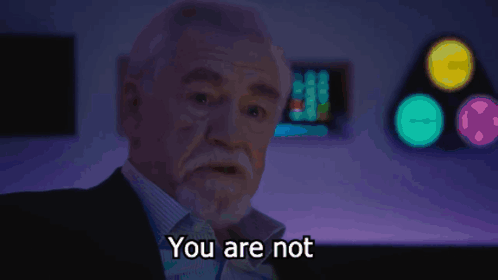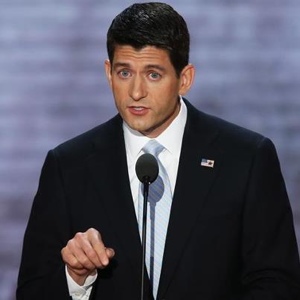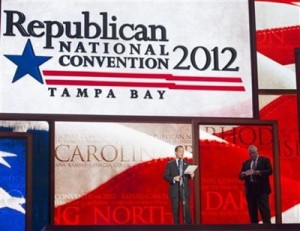After spending tens of millions in what is now the most expensive political campaign in Wisconsin history, the union-led crusade against Gov. Scott Walker is now headed towards the finish line in what is looking to be a likely victory for Gov. Walker, who leads in the RealClearPolitics average by over 6%. Gov. Walker is running against Tom Barrett, the Mayor of Milwaukee and the man that Walker beat in the 2010 governor’s race. Now, it looks like history will repeat itself.

Gov. Scott Walker (R-WI)
Walker pushed through a controversial package of reforms designed to limit the power of Wisconsin’s public sector unions, by limiting their collective bargaining powers and ensuring that union dues were not automatically deducted from employee paychecks. The reaction from the left in Wisconsin was instant and vitriolic. By the tone of the anti-Walker protests one would think that he’d rounded up all public employees and had them drawn and quartered on the Capitol lawn. But despite months of protests organized by the unions and left-wing special interests, it looks like by Wednesday morning Scott Walker will remain Governor of Wisconsin and his efforts to limit the power of union special interests will remain. But how did this firestorm of political protest end up backfiring so decisively on the unions and the Wisconsin left?
The unions turned the battle against Walker into a full-on political crusade, first attacking Justice David Prosser of the Wisconsin Supreme Court and forcing a recall election against him. They lost decisively.
Then the union-led forces continued their attack, forcing recalls on 8 Republican state Senators. Republicans pushed back in recalls against 8 Senate Democrats. In the end, the attempt to shift the balance of power to the Democrats failed—while two vulnerable Republicans were recalled from office, the Senate majority did not shift to the Democrats.
Now, the left and the unions are hoping that the third time will be the charm, a wish that is looking to be yet another sure-fire loser for the Democrats. And the fact that they’re facing a losing battle has engendered a level of political desperation that would be almost comical if it weren’t so dangerous.
For instance, the union-led thugs have reached into the classical bag of dirty tricks and accused Scott Walker of fathering a child out of wedlock—an accusation that a reporter quickly and utterly debunked.
But what is happening in Wisconsin goes beyond mere dirty tricks and directly to voter intimidation. Ann Althouse details an incredibly creepy mailed being sent to Wisconsin residents that shows the voting histories of the recipient and 12 of their neighbors. While the information on the mailer is public record, the intent of the mailer is clearly intimidation—not only does the mailer reveal whether someone voted in the past, but it says that whether someone votes tomorrow will also be part of the public record. Althouse gives the right response:
This is an effort to shame and pressure people about voting, and it is truly despicable. Your vote is private, you have a right not to vote, and anyone who tries to shame and an harass you about it is violating your privacy, and the assumption that I will become active in shaming and pressuring my neighbors is repugnant.
Not only is it repugnant, it’s counterproductive as well. Someone who receives that mailer, which was apparently sent by an anti-Walker group, is not going to be more inclined to vote against Walker when they receive something like that. Such a ham-handed attempt at voter intimidation is not going to play well in Wisconsin.
To demonstrate just how badly things are going for the left in Wisconsin, President Obama has failed to offer any more than token support for the recall. He flew from Minnesota to Illinois last weekend, skipping any appearance with Barrett or on behalf of Barrett. The Democrats have been trying to pretend like the Wisconsin recalls don’t really matter—which would certainly not be the case were Barrett cruising towards victory this week. Watch the campaign spin on Wednesday try to downplay the importance of this race. But the truth is far more complicated than the inevitable political spin, and what is going on in Wisconsin signals a potential shift in the political winds of great consequence to Democrats everywhere.
The Unions’ Last Stand
Why have the unions spent tens of millions of dollars (taking money away from the 2012 Presidential contest) to recall Scott Walker? Walker’s bill that limits (but does not remove) collective bargaining for public sector unions does something even more harmful to unions: it cuts off their money. Under the bill, union dues are no longer automatically removed from a public employee’s paycheck. If the public worker wants to be in the union, they have to affirmatively choose to do so. And what the unions have found is that if it’s a choice, public workers would rather keep the money. The Wall Street Journal notes that internal figures show that membership in the Wisconsin branch of AFSCME has declined precipitously:
Wisconsin membership in the American Federation of State, County and Municipal Employees—the state’s second-largest public-sector union after the National Education Association, which represents teachers—fell to 28,745 in February from 62,818 in March 2011, according to a person who has viewed Afscme’s figures. A spokesman for Afscme declined to comment.
Much of that decline came from Afscme Council 24, which represents Wisconsin state workers, whose membership plunged by two-thirds to 7,100 from 22,300 last year.
Union money is crucial to the Democrats, and without the massive amount of cash from public employee unions, the Democrats are at a decided disadvantage. That’s why the unions went after David Prosser, why they spent tens of millions to try and wrest control of the Wisconsin Senate, and why they’re trying again to unseat Scott Walker—because Walker has gone after their gravy train. The real reason for these recalls has little to do with the rights of public employees and everything to do with making sure that money flows into the Democratic Party.
And that’s why tomorrow’s likely defeat of the hapless Democratic Mayor of Milwaukee is such a major blow to the unions—not only did Scott Walker win, but it’s exposed a harsh reality for unions: their source of money and power is in jeopardy.
Is Wisconsin In Play?
The next question is whether this means that Wisconsin is in play in 2012 for the Presidential race. In 2004, Kerry only barely won Wisconsin, slipping past Bush by a fraction of a percent. In 2012, however, Barack Obama crushed John McCain in a 14-point blowout in the Badger State. The 2012 polls have been all over the place, but some have shown Romney closing in on Obama. But even polls showing Walker comfortably ahead also show Obama with a strong lead.
But here’s where the Democrats made a mistake: the Republicans have been out organizing in three recall elections. They’ve developed a much better ground game then before. The electorate in Wisconsin have had to put up with three Democratically-led recalls and are getting sick and tired of all the constant political ads. The Democrats and the unions have put their best game on, but have fallen short. Instead of defeating Scott Walker, they’ve raised his national standing, and concomitantly his ability to raise money for Romney. All these factors redound to the benefit of the Republicans in a state that is seemingly in play.
It’s still unlikely that Romney can win Wisconsin, although it’s within the realm of possibility. But what Romney can do is force Obama to defend it. Not only that, but Romney can use the main media markets in Wisconsin to reach into parts of Minnesota and Michigan, also putting Obama on the defensive there as well. Romney doesn’t have to win Wisconsin to win the election, but if Romney could pull away Wisconsin and Iowa, he could lose Ohio and still win. Even though that’s a highly unlikely scenario, it shows just how in flux the 2012 race could be.
The Lessons Of The Walker Recall
What is most troubling about this recall election is how dirty it is. The unions, the “progressive” left, and the Democrats have demonized Scott Walker. They’ve invented a narrative in which the Koch Brothers have engineered a takeover of Wisconsin. The rhetoric against Walker is ridiculously over-the-top, and has demonstrated just how obsessed the left has become in trying to crush their opposition. The mailer that Althouse posted is just the tip of the iceberg—there’s a very good chance there will be attempts at direct voter intimidation tomorrow. The left has put all of their chips down on a quest to defeat the object of their hate and derision: what will happen when they lose a third time, and on their biggest target?
The Democrats have tried to turn this race into an attack against Scott Walker, but after pouring millions of dollars into the race and filling the airwaves with attack ads, they’ve failed. Now they’re resorting to desperate allegations of a love child to try and sway the electorate away from Walker. Yet nothing has worked.
And herein lies a lesson for other Republican candidates, especially Mitt Romney. Gov. Walker did not run away from his principles. He did not bow to Democratic attacks, he did not campaign while on the defensive, and he kept his message clear: his reforms led to lower taxes and more private-sector growth for Wisconsin. He kept on message, stayed on message, and did not give an inch against relentless Democratic attack. And he’s likely to win tomorrow because of it.
The Democrats ran a classic attempt at an Alinskyite campaign, and it failed. That is exactly the strategy that the Democrats have used and will use against Mitt Romney in the fall. The GOP has got to be ready for such tactics, and as Scott Walker has ably demonstrated if the Republicans can stand firm on principles, elucidate a clear message focused on jobs and the economy, and recognize the campaign landscape, they can win.




